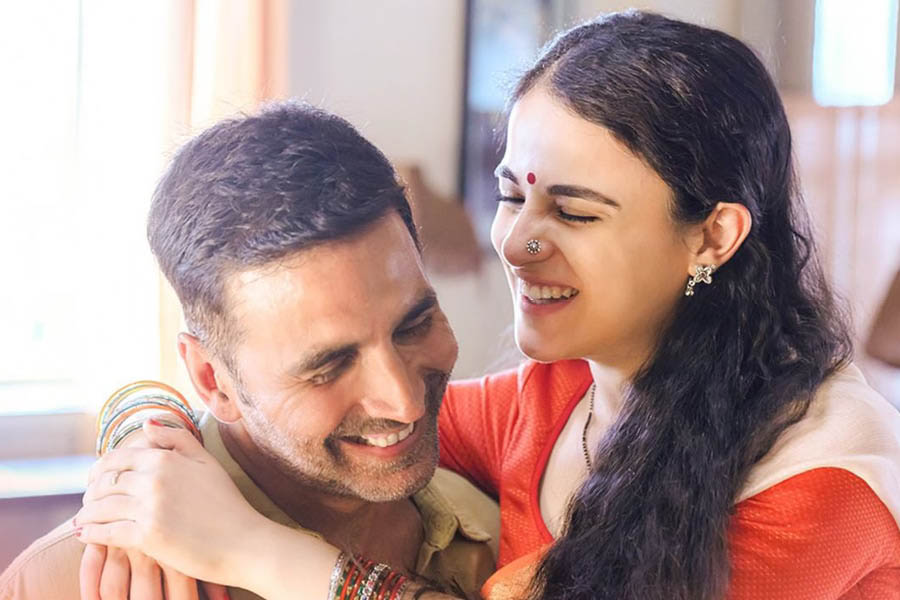Sometimes having an inspirational story to tell doesn’t always translate into an inspirational movie, especially if that movie goes overboard with the melodrama to prove that it is inspirational. Akshay Kumar-starrer Sarfira — a remake of the Tamil film Soorarai Pottru and directed by the same director, Sudha Kongara — has its moments but falls prey to the melodrama.
Based “loosely” on the memoir of Air Deccan founder GR Gopinath and “stories from aviation”, Sarfira follows Akshay Kumar’s Vir, an ex-air force pilot who dreams of starting a low-cost airline for the Indian middle class. Of course, because this is an Akshay Kumar movie, he is also a social saviour, fighting to get trains to stop at his tiny village and championing the underdog. And the movie leaves no stone unturned to prove Kumar’s Vir is the underdog, putting in his way every obstacle possible one after another, from crony capitalists to corrupt bureaucrats and n-number of naysayers.
Kumar has played the social saviour far too long to make any missteps in playing a man who is easily angered by social injustice and a determination to achieve a dream not for himself but for others. His passion is palpable and infectious and is the heart of the movie.
Vir’s biggest support system in this challenge is his wife Rani — a sublime Radhika Madan, who is one of the silver linings of the film. Rani becomes the breadwinner, literally, of the family as Vir struggles to take flight. Unfortunately it often feels like it is her duty to support her husband, who is magnanimous enough to acknowledge her contribution. The film almost completely ignores Vir’s two friends who also throw in their lot and their life savings into his dream. Even Paresh Rawal’s villain, played with adequate menace, is very one-note.
One of the highlights of the film is the chemistry between Akshay Kumar and Radhika Madan, which feels natural and propels a lot of the feel-good factor of the film. Some of the best moments, in fact, belong to the couple and not the low-cost airline that is the focus of the story.
Sarfira turns on the waterworks ever so often including a melodramatic backstory for the low-cost airline dream, several rejections and eventual success. But the climactic scene falls a little short of success because of the way those who are flying the airline are depicted.
For a film that shows how business class travellers treat those travelling in economy as beneath them and one where the idea of cleaners travelling with owners is considered abhorrent by the latter, Sarfira made a misstep in depicting the “masses”. Did it have to spell out how “other” the demographic of those availing the low-cost airline is? How many people does one see in traditional costumes even on a train, which is the way the middle class travels, forget planes? For a movie that wants to break social class and caste barriers such blatant differentiation is self-defeating.
Sarfira is definitely not a boring tale of entrepreneurial genius but in order to avoid that, it tends to tip over into the overwhelming and not always in a good way.










